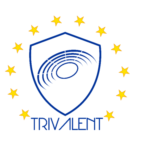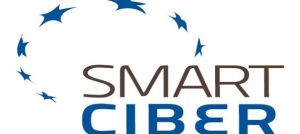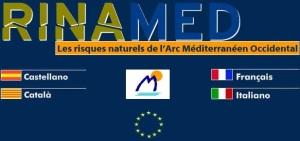ITSTIME – Italian Team for Security, Terroristic Issues & Managing Emergencies collaborates with public and private subjects interested in monitoring different types of threats, elaborating potential risk scenarios, planning prevention strategies, and developing plans for responding to emergency situations, including natural disasters and anthropic events.
ITSTIME runs research, training and consulting.
ITSTIME for Research
The research activities are carried out through the support of European, international, national, public and private funds. ITSTIME experts and researchers are involved on filed researches in North Africa and Sahel, the Middle East and Central Asia and the complex perspective that they have developed deal with the three missions of security, terrorism and crisis.
National and International competitive researches carried out in the last years.

Radical Narratives Going Mainstream: Detecting Strategies and Tools with the Ethnographic Approach.
Year: 2023
https://home-affairs.ec.europa.eu/networks/ran-policy-support_en
EU Member States face numerous challenges ranging from homegrown terrorism to foreign terrorist fighters, which threaten international peace and security. RAN Policy Support aims to address these challenges by bridging the gap between policy-makers and researchers and helping EU Member States make informed decisions to prevent and counter violent extremism effectively.
COUNTER – Countering Radicalisation for a Safer World: Privacy – First Situational Awareness Platform for Violent Terrorism and Crime Prediction, Counter Radicalisation and Citizen Protection.
Years: 2021 – 2023
Web site here.
Twitter and Linkedin
Itstime as WP2 leader participates in the Counter project aimed at developing an early-warning tool useful for law enforcement agencies, Internet providers and social media platforms for the prevention of radicalisation spread and ultimately life-threatening terrorist attacks.
This project has received funding from the European Union’s Horizon 2020 research and innovation programme under grant agreement No. 101021607.

Security of transport workers.
Years: 2020 -2023
BRIC project financed by INAIL, responsible of the unit on risk evaluation and policies. The project aims to create a system to analyse the causes, effects and characteristics of events involving aggression against personnel operating in the transport sector in order to support a proper risk management, understand the links between the events analysed, identify and evaluate the various ‘personal safety’ devices in order to help define a policy to combat such events.
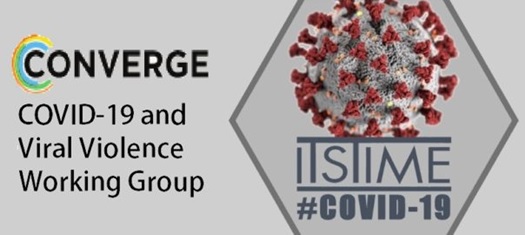
Converge – Covid – 19 Working Group
Itstime Working Group: COVID-19 and Viral Violence
Years: 2017 – 2020
The COVID-19 and Viral Violence Working Group focuses on empirical considerations about the relations between the COVID-19 pandemic and various forms of violence, emerging during the crisis management. The focus area consists of multidisciplinary perspectives on political extremisms taking advantage from the pandemic; violent responses to violations of the quarantine; interpersonal violence; and civil unrest against crisis management measures
TRIVALENT – Terrorism pReventIon Via rAdicaLisation countEr-NarraTive
Years: 2017 – 2020
Financed: EU – Horizon 2020, SEC – 06 -FCT – 2016
Coordinator: UniRoma3 – Centro Altiero Spinelli
Web site here.
Get the newsletter: Newsletter-TRIVALENT-10-11_2017
TRIVALENT is an EU funded project which aims to a better understanding of root causes of the phenomenon of violent radicalisation in Europe in order to develop appropriate countermeasures, ranging from early detection methodologies to techniques of counter-narrative. The underlying assumption of the project proposal, in line with the UN Security Council recommendations (Resolution n. 2178, September 2014) and the Commission “European Agenda on Security”2015-2020 (28.4.2015, COM(2015) 185 final), is that in order to contrast successfully violent extremism, what is needed is a more balanced response to terrorism, combining repressive (protective) measures with preventive measures, in a comprehensive approach in collaboration with actors of civil society and the communities of reference, based on a firm commitment to respecting fundamental rights, promoting integration, cultural dialogue and fighting discrimination.
Stress – Strategies, Tools and new data for REsilient Societies
Years: 2017 – 2019
Financed: Fondazione Cariplo
Coordinator: Istituto per la Dinamica dei Processi Ambientali – CNR-IDPA
Maggiori informazioni qui.
STRESS è finalizzato alla progettazione, implementazione e test di un prototipo di Infrastruttura Spaziale di Informazioni a supporto delle attività dei pianificatori e gestori del rischio idrogeologico attraverso l’acquisizione di nuovi dati (da satellite e/o volontariamente forniti dai cittadini) e nuovi strumenti utili a migliorare le procedure da attuare per la valutazione della suscettibilità, pericolosità e impatto, da eventi di tipo idrogeologico. STRESS applicherà strategie innovative, basate sull’ICT (Information & Communication Technology), nel campo della comunicazione, educazione e disseminazione, a differenti livelli istituzionali, dei risultati progettuali e delle strategie di prevenzione, monitoraggio e mitigazione del rischio idrogeologico al fine di incrementare la consapevolezza dei cittadini verso i rischi e promuovere la loro partecipazione a livello delle strategie di decision making, recependo i principi fondamentali della Ricerca e dell’Innovazione Responsabile.
From Criminals to Terrorists and Back?
Years: 2017 – 2019
Financed: PMI – Philip Morris International
Coordinator: GLOBSEC Policy Institute
Web site here.
Analysts of GLOBSEC Policy Institute and the leading experts on terrorism based in 11 European countries, will analyse the potential criminal pasts of more than 1000 terrorism arrestees from Austria, Belgium, Bulgaria, Germany, Greece, France, Ireland, Italy, the Netherlands, Spain, and the United Kingdom. The results of their work will be showcased at high profile international events organized annually by GLOBSEC. GLOBSEC’s original conclusions on the presumed crime-terror nexus will provide the authorities with actionable recommendations on how to counter terrorism in Europe more effectively, and how a fight against ordinary crime could assist and best inform efforts to tackle terrorist groups.
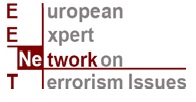
PoMigra – Politically motivated crime in the light of current migration flows – a transnational situation report and development of practical prevention measures
Years: 2016 – 2018
Financed: ISF – Internal Security Fund – Germany
Coordinator: BKA – Federal Criminal Police Germany
The project was joined by seven other EENeT experts as partner (experts from Austria, Belgium, Czech Republic, Greece, Hungary, Italy and the, Netherlands). The project, which will run until June 2018, will research the nexus between recent migration flows and extremist crime. Therefore, the project partner will draft comparable national situation reports. The project investigates as well opportunities to compare national data on extremist violence and will formulate recommendations for more effective prevention measures.
EENet RAD 2014-2016 – European Expert Network on Terrorism Issues (EENeT) – Focussing Radicalisation June 2014 – Mai 2016
Years: 2014 – 2016
Financed: EU- DG Home Affairs, Restricted call for action
Coordinator: BKA – Federal Criminal Police Germany
Web site here.
The EENeT is dedicated to multidisciplinary and multi-agency analysis and research which are considered prerequisites for providing comprehensive insights into the complexity of the phenomenon “terrorism”. Since the phenomenon is influenced by a large number of factors, holistic phenomenon monitoring presents itself as an extremely complex undertaking, which only appears possible on a multidisciplinary basis, in close co-operation with the specialist departments and experts from the law enforcement agencies / relevant authorities and the field of science.
EvoCS – The evolving concept of security: A critical evaluation across four dimensions
Years: 2014 – 2015
Financed: EU – 7th Framework Programme for Research and Technological Development (FP7)
Coordinator: The Fraunhofer Institute for Technological Trend Analysis INT – D
Web site here.
The EvoCS project deals with the evolving concept of security and has a focus on the European Union and its close neighbours . The project aims at providing a holistic view on the complex and somewhat diffuse concept of security by evaluating it across four security dimensions.
Countering Violent Extremism among Youth to Prevent Terrorism
2013 – 2014
Financed: NATO SPS Programme Advanced Research Workshop
Coordinator: ITSTIME – Catholic University
Web site here.
The project address violent extremism that can motivate young people to engage in terrorism acts. This phenomenon calls for more effective responses to tackle terrorist organisations’ capacity to recruit young people worldwide. New members are an essential resource for pursuing a political agenda based on violence means. Protracted political crisis and instability are key drivers for the emergence of violent extremism. Conflicts such as those occurring in MENA countries continue to attract youth from abroad for what they see as a defensive jihad. ‘Foreign Fighters’ and mercenaries combatants that move from one zone of conflict to the other highlights the seriousness of the situation EU countries worry that young returnees from battlefields of the jihad pose a threat to society, something that has already begun to manifest itself. ‘Foreign Fighters’-related threats need to be addressed more comprehensively with a closer political level dialogue since they affect other departure, transit and receiving countries.
IRISS – Increasing Resilience in Surveillance Societies
2011 – 2014
Financed: EU – 7th Framework Programme for Research and Technological Development (FP7)
Coordinator: IRKS (Institut für Rechts- und Kriminalsoziologie), A
Web site here.
IRISS will reconstruct the spread of surveillance systems and technologies in public and private sectors from the perspective of their impact on the fabric of a democratic society. The project will focus on the observable effects and everyday understanding of surveillance in contemporary Europe, analysing differences within and between individual societies and matching the observable effects against the situation in other parts of the world.
System of Maps Assessing Risk of Terrorism against Critical Infrastructures in Big Events Rallies – Smart Ciber
2011-2013
Financed: CIPS 2010, EU programme “Prevention, Preparedness and Consequence Management of Terrorism and other Security related risks”
Coordinator: Municipality of Milan
Web site here.
Smart Ciber, a project co-funded by the European Union program CIPS, has as its goal the prevention and reduction of terrorism risks and all other risks related to the safety sector. It aims to improve the terrorist risk assessment at the expense of critical infrastructures in metropolitan areas, paying special attention to mega-events. Starting from the experiences of four European countries (Italy, Nederland, Hungary and Bulgaria), the project aims to develop a model through a software which operates in a network for an “Integrated Risk-Map Against Terrorism Issue”. This system will reveal the level of “Risk” and its location in real time through the intersection of several pre-defined risk-indicators.
ACRIMAS – Aftermath Crisis Management System-of-systems Demonstration
2011 – 2012
Financed: EU – 7th Framework Programme for Research and Technological Development (FP7)
Web site here.
ACRIMAS is a 15 months Support Action (SEC-2010.4.1-1) with 15 partners from 10 European countries, which shall develop a roadmap for an upcoming Demonstration Project (in Phase II) within Crisis Management (CM). This roadmap will elaborate a systematic development process for CM systems, procedures and technologies in Europe, to be implemented within the demonstration project. The process aims for gradual evolvement of CM capabilities through demonstration and experimentation (DE) activities, transfer of related knowledge between stakeholders and by promoting an environment for co-development of CM technology and methodology where users, providers and researchers work together. ACRIMAS further emphasises community-building which will be considerably supported by the execution of the subsequent Phase II, bringing together the various key stakeholders and the available DE infrastructures in a case-by-case demonstration or experimentation activity.
ANDROID (Academic Network for Disaster Resilience to Optimise Educational Development)
2011 – 2014
Financed: EU – 7th Framework Programme for Research and Technological Development (FP7)
and EU – Erasmus Academic Network
Coordinator: Centre for Disaster Resilience , University of Salford, UK
Web site here.
ANDROID is an Erasmus academic network that aims to promote co-operation and innovation among European Higher Education to increase society’s resilience to disasters of human and natural origin. The network’s teaching and research is concerned with what resilience is, what it means to society, and how societies might achieve greater resilience in the face of increasing threats from natural and human induced hazards. The network will create a European approach that will help us understand the attributes that enable physical, socio-cultural, politico-economic and natural systems to adapt, by resistance or changing, in order to reach and maintain an acceptable level of functioning. The network will also raise awareness and promote a common understanding among stakeholders of the importance of disaster resilience education and the essential role of European HEIs in improving society’s ability to increase disaster resilience.
Learning for Security (L4S)
2009-2011
Financed: EU – 7th Framework Programme for Research and Technological Development (FP7)
Coordinator: Deloitte Business Solution
Web site here.
L4S Knowledge Community provides to researchers security executives and crisis managers simulation designers vocational trainers and students access to all L4S powerful simulation-based learning experiences components and research material.
La sicurezza nella periferie urbane
2008 – 2009
Financed: Italian Ministry of Interior
Coordinator: Fondazione ISMU – Milano
L’indagine ha preso in esame sei territori in quattro differenti realtà metropolitane e cittadine ad alta densità di presenza di stranieri: Roma (Municipio 6, Torpignattara e Municipio XV, Trullo), Milano (zona 2 e zona 7), Acerra (provincia di Napoli) e Chieri (provincia di Torino). La ricerca ha preso le mosse dalla raccolta e dall’analisi di testimonianze di esperti e studiosi di differenti discipline: dalla sociologia alla demografia, dalla giurisprudenza alla psicologia, dalla statistica alla criminologia. Sulla scorta dei riscontri empirici, frutto di un approfondito studio sul campo nei territori studiati, emergono e vengono illustrate molteplici proposte di intervento atte a favorire i processi di integrazione tra la popolazione italiana e le popolazioni provenienti dai Paesi ad alta pressione migratoria: dalle misure a sostegno della famiglia e dei minori a quelle relative alla sicurezza urbana, dalle azioni a favore della partecipazione sociale alle strategie di riqualificazione territoriale.
Early Warning systems: technical aspects, urban planning and communication
2006-2008
Financed: PRIN Progetti di Rilevante Interesse Nazionale
Coordinator: Politecnico di Milano
Web site here.
In the context of environmental risk prevention and mitigation, early warning systems have been always considered mainly as a technical problem, connected to monitoring systems to control variables in order to forecast in short time some possible disastrous event.
There are at least two crucial fields to be explored in the attempt to develop better early warning systems: the first relates to the development of scientific knowledge to be used in forecasting reliable models; the second concerns the connection between these technical and scientific tools and the social networks through which the alert message can be progated in appropriate ways to save lives.
A relevant contribution of the present research proposal will be therefore the structuring in a unique tool of those different steps and elements of a compelx warning system, in a way that each step be coherent with the following one, gaining insight from past experience and available literature, national as well as international.
A Pilot Study on Four key EU Member and Candidate Countries on the Demand for Trafficked Prostitution (How Much?)
2005-2007
Financed: European Commission, Justice, Freedom and Security DG, AGIS 2005 Framework Programme
Coordinator: Fondazione ISMU, Milano.
Web site here.
The pilot study in key states (Italy, Romania, Sweden, The Netherlands) aims at: profiling the demand of trafficked/foreign prostitution; understanding the forces that drives it; comparing the characteristics of the demand across-countries; assessing if best practices of intervention are exportable and suggesting new tailor-made ways to reduce the demand. The activities are: to draft a profile of each pilot country on legislative approaches to migration policies, prostitution, trafficking in human beings, and socio-economic factors that could affect the demand; to point out those subjective factors that may influence the demand; to draft and administer a semi-structured interview to collect information on the clients; to analyse the country results by profiling the clients; to compare across countries the results of the interviews and to describe how legislative and social interventions and socio-economic factors may affect the demand; to suggest tailor-made, implementable, policies and practices in order to reduce the demand; to disseminate the results also through an international seminar. The project may have an impact on the definition and implementation of common standards in the EU for the prevention of trafficking for sexual exploitation through interventions on the demand.
Elaboration and application of a common strategy among local actors in the Mediterranean Arc to inform and sensitize the populations to natural risks (RINAMED)
2002-2004
Financed: Interreg III Med-Occ
Coordinator: Generalitat de Catalunya, Direcció General d’Emergències i Seguretat Civil del Departament d’Interior.
Web site here.
Rinamed s’intéresse à la sensibilisation de la population de l’espace Medocc face aux risques naturels. Le projet a pour objectif d’amener le citoyen à mieux connaître et appréhender les risques naturels auxquels il est potentiellement confronté, et à les considérer comme des servitudes à part entière. Il s’agit de définir un cadre de prévention et d’information commun à l’espace méditerranéen européen, qui puisse se décliner et s’adapter ensuite sur chaque zone. Le projet souhaite ainsi contribuer à l’émergence d’une culture commune des risques naturels majeurs dans les régions méditerranéennes impliquées.


